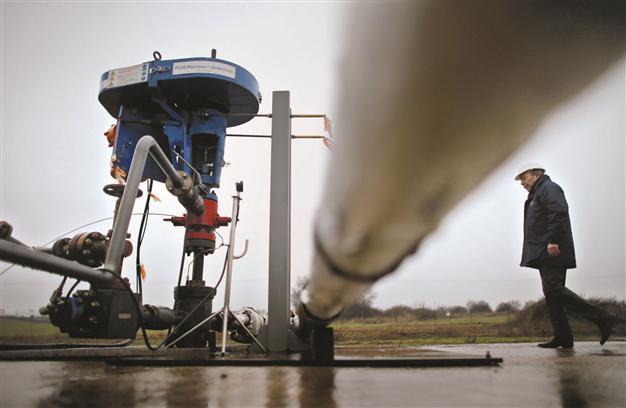Shale gas reserves ‘enough for 40 years’
ANKARA - Anatolia News Agency

Turkey’s shale gas reserve is 1.8 trillion cubic meters, says an expert. REUTERS photo
Turkey’s estimated shale gas reserve is 1.8 trillion cubic meters and could satisfy 40 years of natural gas consumption with an annual production of 45 billion cubic meters, according to the Turkish Association of Petroleum Geologists (TPJD).
“Turkey has considerable shale gas potential, particularly in the regions of Thrace and the Southeast,” said TPJD President İsmail Bahtiyar yesterday. Turkey’s natural gas consumption is around 45 billion cubic meters a year, he said, noting that the estimated shale gas reserve, which is 1.8 billion cubic meters, would satisfy Turkey’s natural gas consumption for the next four decades. “These figures are for only the Thrace and Southeast Regions. We think there are also shale gas reserves in East Anatolia, Ankara, the Toros Mountains [in the south] and the Black Sea region,” he said.
Shale gas does not constitute an alternative to natural gas, it actually has the qualities of natural gas, he said, though as the traditional drilling of wells costs between $2 and $3 million, shale gas production is a higher-cost process. In spite of this, it will lower oil and natural gas prices, he stressed, adding that the Oil Law in Turkey protected risk-profit balances in favor of investors.
Bahtiyar noted that natural gas consumption prices decreased in the United States due to their shale gas production that intensified in the last years in parallel with increases in their natural gas demand. He also noted that Turkey’s natural gas consumption price was four to five times more than the U.S.
Meanwhile, Turkey paid $60.1 billion for energy last year with an 11 percent increase from a year earlier, according to figures of state-run statistic body TÜİK. The figures show that a quarter of Turkey’s $237 billion in total imports last year consisted of energy imports and the IMF forecasts it will surpass $70 billion by 2017.
